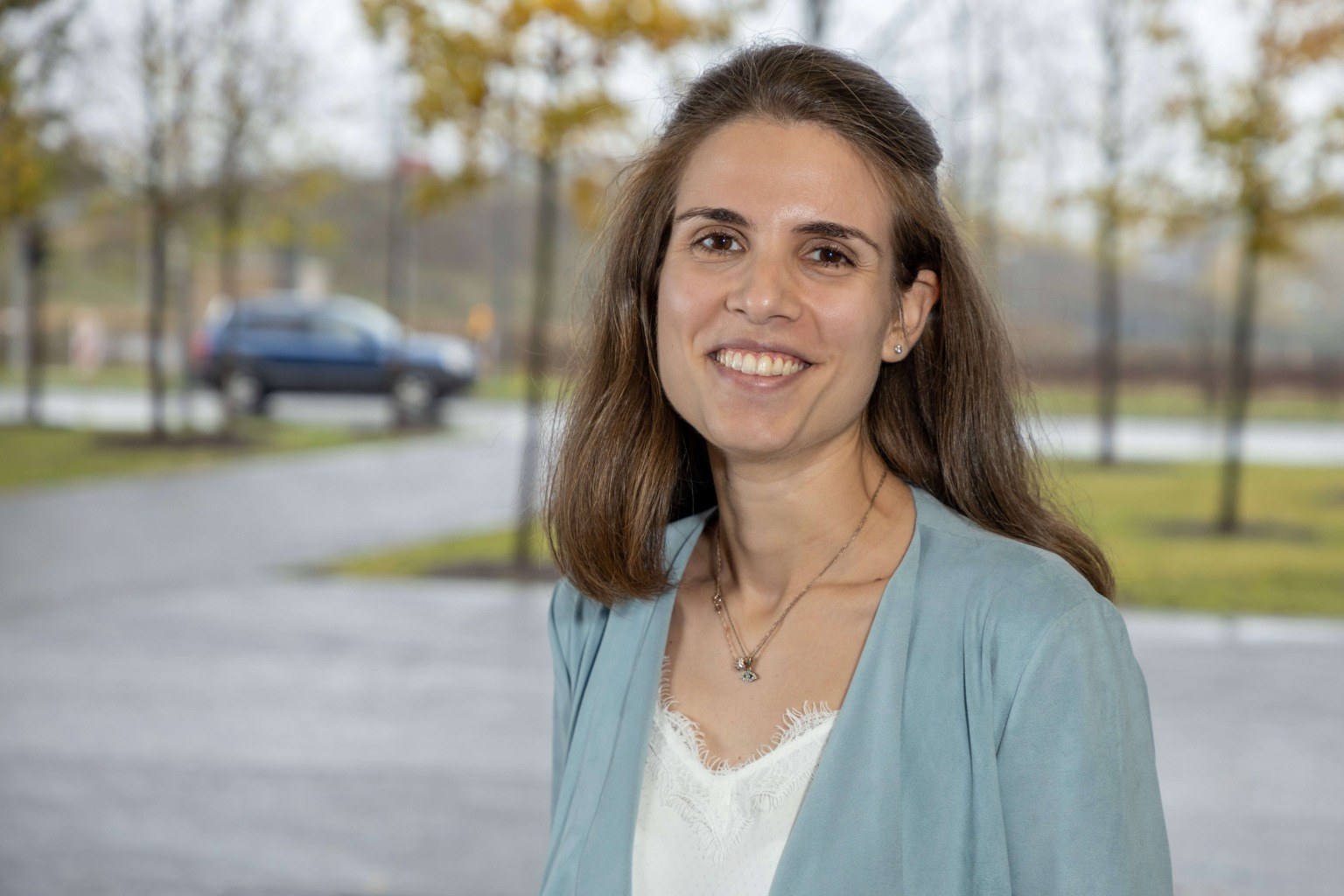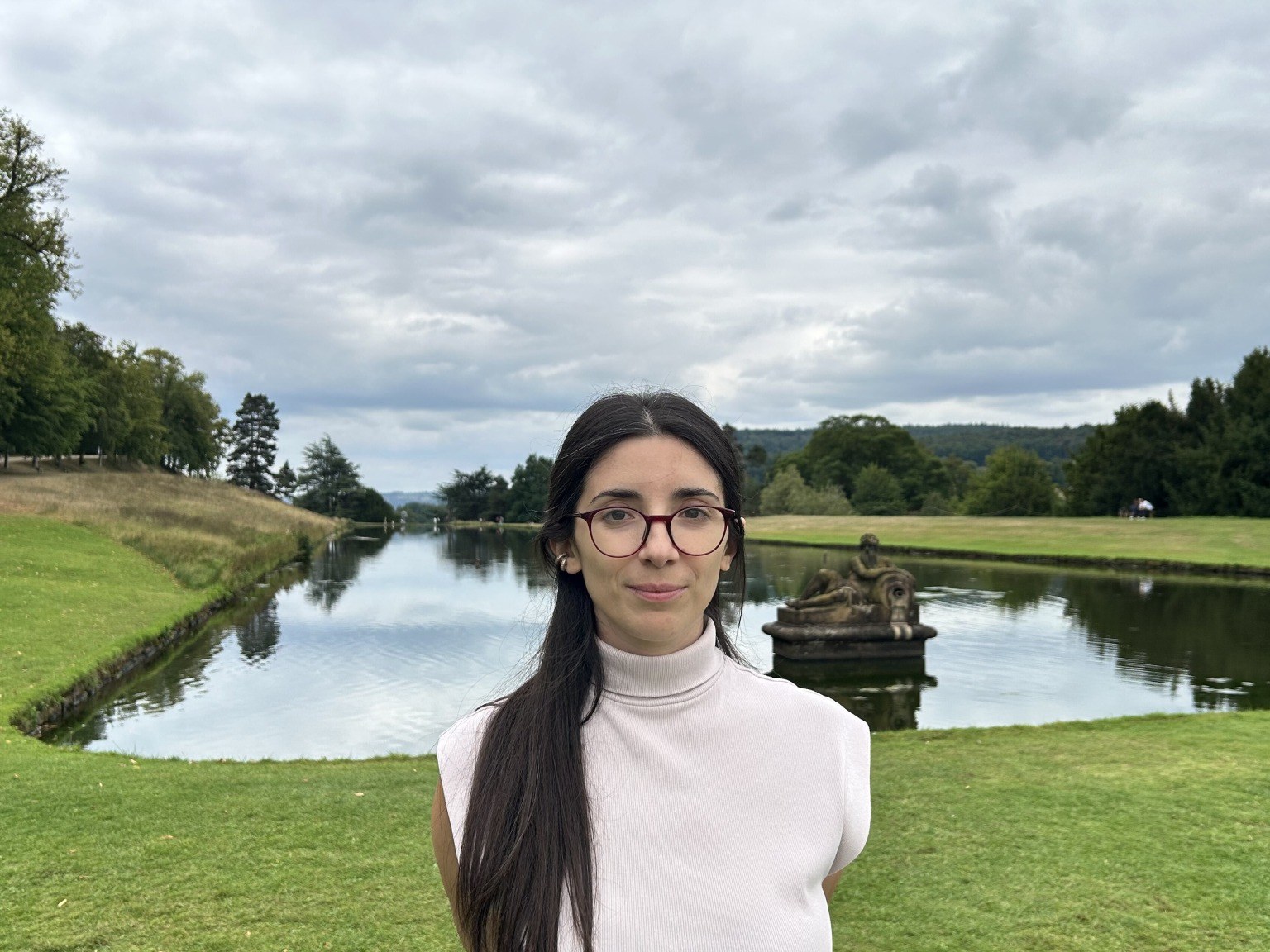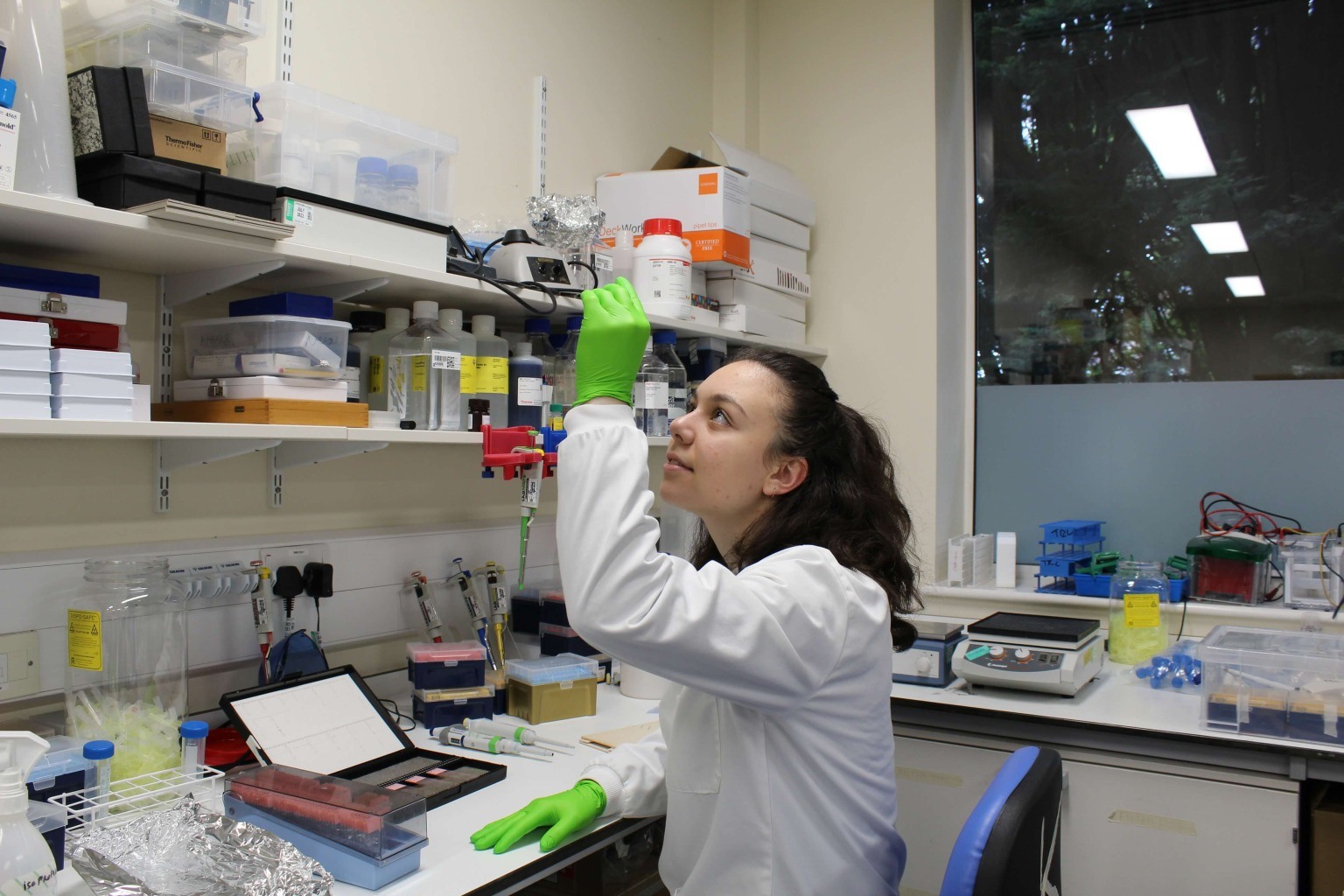
Exploring the invisible: Dr. Ariadni Boziki simulates the molecular world
Chrysovalantou Kalaitzidou

Magazine / Interviews , Science , Mentoring
Dr. Maria Pavlou is a Scientific Project Manager at the University of Luxembourg. She has many years of experience in research and more specifically in neuroscience and Parkinson’s disease. Her first degree was in Biology from the University of Athens. She continued her Master's studies at the University of Sussex, UK, in the field of Developmental Cell Biology. In 2011, she started her PhD at the University of Münster and University of Luxembourg, where she worked on establishing a cellular model for studying Parkinson’s disease. After the PhD, she worked as a postdoctoral scientist at the Georg-August University of Göttingen (University Medical Center Göttingen) and later at the University of Luxembourg. She currently holds a permanent academic position as a Scientific Project Manager at the University of Luxembourg. She talked to Greek Women in STEM about her academic and scientific career and its challenges.
You have many years of experience in research. What made you follow this particular path after your studies in Biology?
During my Bachelor thesis, I had the opportunity to be exposed to various techniques/methods and projects and spend many hours in the lab. It was clear to me that I wanted to continue with a Master’s degree and afterwards pursue a PhD. Lab life was something that fascinated me, and I was hoping that eventually would reach the point where my research would be of value to the scientific community and would be published.
During your PhD studies, you focused on cellular models for Parkinson’s disease. Why did you choose this research topic? Did you face any challenges along the way?
My PhD research was supported by a fellowship I earned from the Max Planck Institute in Münster. During my interviews in the institute, I visited the top 3 labs that I had chosen. The lab I chose in the end was the one that really impressed me in terms of projects, Principal Investigator, and future/potential colleagues. My project focused on neurogenesis, and when the lab moved from Münster to Luxembourg, I studied, in addition, a Parkinson’s disease-related gene. In terms of challenges, I think I faced similar ones that many PhD students encounter. I believe that accepting challenges certainly attracts moments full of disappointment, with frustration after possible failures, but also brings great satisfaction when overcoming these issues.
After the PhD, you decided to continue in a postdoctoral position. What was the topic of your research?
After my PhD I continued my research at the University Medical Center Göttingen. I was investigating the contribution of epigenetics in Parkinson’s disease (PD) pathogenesis and how potential epigenetic deregulations observed due to mutations on the alpha-synuclein (SNCA) gene are associated with alterations in gene expression. In parallel, I was studying the involvement and importance of several environmental factors on the epigenomic mechanisms in relation to PD etiology and progression. Following this position, I moved back to Luxembourg, where the opportunity appeared, and I continued with another postdoctoral position. I aimed to profile the temporal transcriptomic and epigenomic changes that occur during the differentiation process of astrocytes under homeostatic and inflammatory conditions. In this project, we developed a computational method that aimed to reconstruct gene regulatory networks for distinct states of astrocyte differentiation and to identify upstream signaling pathways that control these networks by integrating transcriptomic profiles and epigenomic analysis. The final goal was to be able to identify the key signaling pathways regulating the differentiation process under homeostatic conditions and the ones deregulated in inflammatory conditions.
Now, you are working at the University of Luxembourg as a Scientific Project Manager. What exactly are you doing in this position?
My responsibilities involve the organisation, establishment, and smooth operation of the new Bachelor programme in Medicine that started for the first time in September 2020. The first year of medical studies was operational for many years at the University of Luxembourg. Our students still have the opportunity to continue their studies in Belgium, France, and Germany. I participate in the preparation of the necessary documents for our University’s governing bodies. I approached the indicated colleagues of my manager in order to find out if they are interested in participating in the teaching of our new Bachelor programme. I take part in the planning and structuring of each semester, in discussions and document preparation regarding our programme’s budget. I am in contact with the four hospitals of the country regarding the training of our medical students and with the Federation of the Luxembourgish hospitals to discuss any project that concerns our students and the hospitals. Finally, I am also involved in certain interactions with the Ministry of Health and the Ministry of Higher Education and Research.
How and why did you decide to change from active research to Project Management?
I really like research, and I miss many aspects of lab life. However, I wanted to make a change. I wanted to learn new things and take on further challenges. This decision, together with the fact that during my career I started a family, made me re-orientate towards different opportunities.
When experiments fail or when the results are not as anticipated, you learn how to perform steadily under stress, to experience failure and fall down but then stand up and keep going.
How do you apply your research experience to this position?
When you perform research, you need to design experiments to plan in advance in terms of time, equipment, and materials. This teaches you how to stay well-organised and disciplined, to meet certain deadlines, to prepare ahead of time, to perform with attention to detail, and to prioritize the work for the efficient completion of various tasks. When experiments fail or when the results are not as anticipated, you learn how to perform steadily under stress, to experience failure and fall down but then stand up and keep going. Submitting projects for funding opportunities, or writing a scientific article, or presenting your work at a conference provides you with critical thinking, gives you the opportunity to investigate, assess the information you are exposed to, to analyse and interpret your results. In addition, being a researcher demands being able to coordinate teams and multiple stakeholders, to work in collaboration projects, to communicate clearly in writing and speech at different hierarchical levels, and to have outstanding interpersonal skills. All the different scientific challenges that I faced taught me to be more diplomatic, efficient, and adaptive. My research experience also taught me how to become proactive and rigorous and how to adapt easily within a dynamic environment, and how to work independently.
Which is, you think, your biggest asset that helped you land this job?
I would say it was a combination or even a series of fortunate events. First of all, I would say my academic qualification, i.e., my PhD degree. Secondly, I would say the fact that I was already a member of the Luxembourgish scientific community, therefore, I am well aware of its research and academic landscape and in particular of the national health and biomedicine environment. Finally, I think the fact that I have studied abroad for several years was an asset in terms of languages (I am fluent in English and French, and I can have small conversations in German and now in Luxembourgish as well) and in terms of an open, multicultural mindset.
Did you always know that you wanted to follow this career path? If not, looking back now, would you make different choices for ending up in the same position you are in now?
Regarding my current position, I would say no. As I mentioned before, from my early study years, I knew I wanted to do research and pursue a PhD degree. However, I only realised during my PhD that apart from research, people with my background can work as project managers, research facilitators, or science communicators. I would not change anything in my career. Every step I took was a valuable lesson for me, and this entire path affected me in a more positive way and made me the person that I am now, still trying to grow and feeling grateful for all the challenges that I encountered or are pending in the way.
Along your career path, have you had people who helped you reach your goals?
During my studies, I had the chance to have people in my life who inspired me. I will always thank Prof. Stravopodis from the University of Athens, who has been a great mentor and afterwards a really good friend. My PhD supervisor, Prof. Schwamborn, guided me for 4 years and gave me the opportunity to discover several aspects of myself during this period. Of course, none of this would have been possible without the support of my family, friends, and colleagues. Regarding my current position, I owe my gratitude to Prof. Massard for showing me complete and absolute trust and for giving me the opportunity to dive deep and grow.
What would you advice someone that wants to follow this career path?
Project management has many applications, and it is true that these positions are not unlimited and maybe not so often obvious in some countries. I would advise them to be patient and never to stay stagnant. I find lifelong learning extremely important. I feel lucky because within the University, I have the chance to participate in various trainings, online courses, etc. This enables me to stay alert, accept new challenges, and learn something new. Finally, I would advise to set goals, to stay focused, and to remain determined.

Chrysovalantou Kalaitzidou

Thaleia-Dimitra Doudali

Danai Korre
